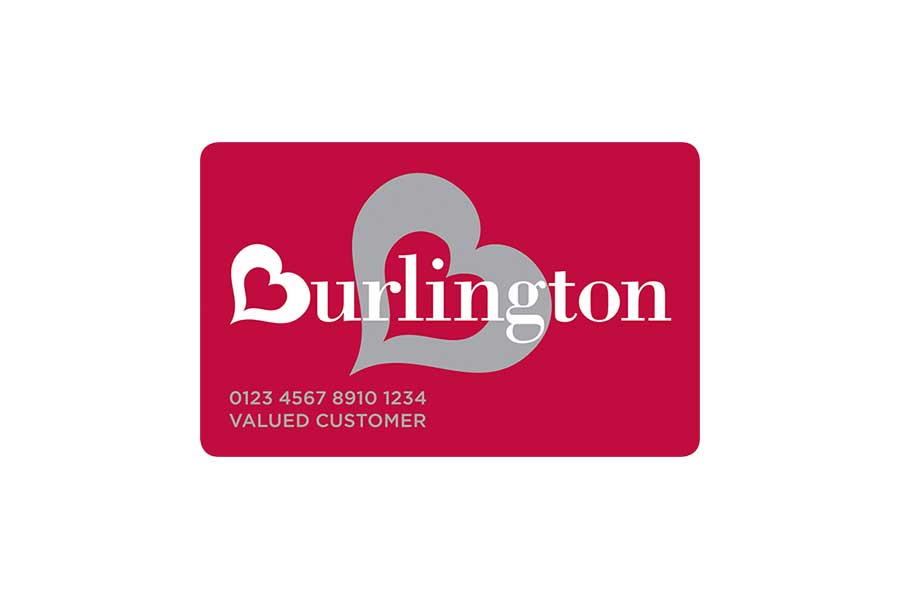Credit cards, like any financial tool, can be beneficial or detrimental depending on how you use them. For those who know how to use a credit card responsibly, they can be a valuable asset. They can help build credit, earn rewards, and provide a financial safety net.
Yet, for those who use them recklessly, credit cards can lead to a cycle of credit card debt that’s hard to break free from.
Once you understand that it’s all about how you use them, credit cards transform from potential enemies into powerful allies.

Key Takeaways
- Using credit cards responsibly can help build your credit, earn rewards, and provide a financial safety net for emergencies.
- Key strategies for responsible credit card use include setting a budget, paying off balances in full and on time, regularly checking statements, limiting the number of credit cards, and keeping your credit utilization low.
- Major benefits of responsible credit card use include financial flexibility through intro APR offers, earning rewards for everyday purchases, and building a strong credit history, which can lead to better loan terms and lower interest rates.
How Credit Cards Can Help
When used responsibly, credit cards can help you in three major ways:
- Building credit: Responsible credit card use can help build your credit history. Card issuers report your payment history to the three credit bureaus, and if you make on-time payments and keep your credit utilization ratio low, your credit score will likely increase. This can open doors to better loan terms, lower interest rates, and more financial opportunities.
- Earning rewards: Many credit cards offer rewards programs that allow you to earn points, miles, or cash back on your credit card purchases. These rewards can be used for travel, gift cards, statement credits, and more. The key is to use your card for everyday purchases and then pay off the balance in full each month to avoid interest charges.
- Providing a financial safety net: Credit cards can serve as a financial safety net in case of emergencies. Instead of depleting your savings or turning to high-interest loans, you can use your credit card to cover unexpected costs. Just remember, it’s important to have a plan to pay off the balance as soon as possible to avoid paying interest.
How to Use Credit Cards Responsibly
Learning to use a credit card responsibly is the first step in leveraging the power of credit to your advantage. Here are some effective strategies to help maintain control over your credit card use.
Set a Budget
Creating and adhering to a budget is a fundamental step to using a credit card wisely. Determine your monthly income and expenses, and ensure your credit card spending aligns with this budget.
If a purchase can’t be covered by your current bank account balance, it’s a strong sign that you probably can’t afford to charge it to your card. Remember, credit cards aren’t an extension of your income; they’re a tool for short-term borrowing that needs to be repaid.
Pay Off Balances in Full and On Time
Each month, strive to pay off your credit card balance in full. This not only helps you avoid interest charges but also demonstrates good credit management, which can improve your credit score. If you can’t pay the full balance, at least make the minimum payment every month.
Be mindful of your card’s billing cycle. Know the due date for your payments to avoid late fees and additional interest charges. Setting up automatic payments linked to your bank account can ensure your payments are made on time, every time.
Regularly Check Statements
Regular reviews of your monthly statements help you keep track of your spending, identify any billing errors, and spot early signs of credit card fraud. If you notice unfamiliar transactions, notify your card issuer immediately to prevent further unauthorized charges and protect your credit card account.
Limit the Number of Credit Cards
While having multiple credit cards can help diversify your credit mix and offer various rewards, they can also pose management challenges and temptations for overspending. Evaluate your ability to manage multiple accounts responsibly. If you can’t pay the full balance on each card every month or if tracking multiple billing cycles becomes overwhelming, it’s better to limit the number of credit cards you carry.
Don’t Use Your Card for Cash Advances
Cash advances may seem convenient, but they typically come with high interest rates and fees. It’s better to dip into your emergency savings account or consider a personal loan for sudden cash needs.
Keep Your Credit Utilization Low
Your credit utilization ratio, the percentage of your available credit that you’re using, impacts your credit score. Aim to keep this ratio below 30% to show lenders you can handle credit responsibly.
Be Mindful of Credit Card Applications
Each time you apply for a credit card, it generates a hard inquiry on your credit report, which can temporarily lower your credit score. Apply for new credit only when necessary.
Implement these strategies to cultivate healthy habits that enable you to use your credit card responsibly and keep your financial future secure.
3 Major Benefits of Using Credit Cards Responsibly
Credit cards are not just a means of borrowing money to pay for immediate expenses. When used strategically, they provide significant benefits that improve your financial health and even offer lifestyle enhancements. Here are three major advantages of responsible credit card usage:
1. Financial Flexibility through Intro APR Offers
Introductory annual percentage rate (APR) offers are incentives provided by credit card companies to attract new customers. These offers come with a significantly lower interest rate for a specific period, usually between 6 and 18 months.
When used responsibly, these intro APR offers provide a cost-effective way to finance larger purchases or pay down existing credit card debt with balance transfers. This means you can buy that expensive appliance you need or reduce your current debt burden without incurring hefty interest charges.
However, it’s critical to read the fine print and fully understand the offer’s terms. Know exactly when the introductory period ends and what the standard APR will be afterward. Remember, late payments could prematurely end the promotional period, resulting in a higher APR sooner than expected. It’s also important not to view these offers as an opportunity for excessive spending but, rather, as a tool for strategic financial planning.
2. A Better Life through Credit Card Rewards
Credit cards, particularly rewards cards, offer a variety of perks and bonuses. These may include cash back, travel rewards, points redeemable for merchandise, and even access to exclusive, one-of-a-kind entertainment experiences. Some cards also provide benefits such as extended warranties, insurance, and robust fraud protection.
To maximize credit card rewards and benefits, understand the terms and reward structures of your card. Some cards may offer higher rewards on everyday expenses like groceries and gas, while others may favor dining out or travel costs. By aligning your spending with these categories, you can earn substantial rewards over time.
Again, the key is responsible spending. Don’t overspend or go into debt just to earn rewards. The ultimate goal should be to use your credit card wisely on the purchases you’d make anyway, and enjoy the rewards as a bonus.
3. A Strong Credit History
One of the most significant advantages of using a credit card responsibly is the positive impact it can have on your credit. Your credit card activity, including your payment history, the length of credit history, credit utilization, credit mix, and new credit inquiries, are all factors that contribute to your credit score.
Timely payments, maintaining low credit card balances, and careful management of new credit inquiries can contribute to a high credit score. A robust credit score represents your creditworthiness to potential lenders and paves the way for better terms and lower interest rates on future credit lines, including car loans or mortgages.
Using a credit card responsibly can provide valuable financial flexibility, reward you for everyday purchases, and contribute to a strong credit rating. The key is to understand how to use your credit card wisely and make strategic decisions that enhance your overall financial wellbeing.
Unlock High-Value Travel Experiences with Credit Cards
As mentioned, travel credit cards offer frequent travelers the opportunity to earn points or miles that can be redeemed for various travel-related expenses. By using these cards responsibly and strategically, you can embark on trips that might typically cost tens of thousands of dollars, for a fraction of the cost, or in some cases, for free.
Earn Through Sign-Up Bonuses
A substantial perk of travel cards is the sign-up bonus. Many issuers reward new users with a hefty amount of bonus miles or points after meeting a specific spending threshold in the first few months. These bonuses can quickly accrue to translate into substantial travel savings.
Maximize Points with Category Spending
Travel credit cards often offer higher earning rates on certain categories, such as travel bookings, dining, or gas purchases. Aligning your spending with these high-reward categories enables rapid accumulation of points or miles.
Leverage Points for High-Value Travel
The key to unlocking those high-value trips is understanding your card’s reward structure and redemption options. Different card issuers may have varying point values, restrictions, or blackout dates. Being aware of these details allows you to plan and maximize your rewards effectively.
Enhanced Security: Credit Cards vs. Debit Cards
Credit cards offer a stronger level of fraud protection compared to debit cards, adding to their list of advantages. If unauthorized transactions occur on your credit card, you’re typically not liable. Many credit card issuers have sophisticated fraud prevention measures and can often identify and alert you of suspicious activity quickly.
In contrast, debit card fraud can result in funds being drained directly from your checking account. Although you’re likely to recover these funds, the process can be lengthy, leaving you without access to your money in the interim.
Moreover, federal laws cap your liability for fraudulent credit card charges at $50, whereas for debit card fraud, the liability can be much higher. Regular account monitoring and timely reporting of any unusual activity can help you leverage these enhanced protections.
Conclusion
The fine print, high interest rates and numerous charges can make credit cards seem intimidating. But if you understand how to use your credit cards, they can be powerful tools to unlock financial security and even substantial savings. Whether it’s leveraging intro APR offers to finance large purchases, using rewards for everyday spending, or building your credit, the benefits of using a credit card responsibly are immense.
A responsible credit card user treats their card like a debit card, spending only what they can afford to pay back. They monitor their account, report lost or stolen cards promptly, and stay vigilant against potential credit card fraud. The result is a healthier financial life and higher credit scores.
Remember, using credit cards responsibly is not just about reaping the benefits but also about ensuring a stable financial future. With knowledge and discipline, you can use your credit cards to your advantage while avoiding potential pitfalls.
Frequently Asked Questions
Can I negotiate for a lower interest rate with my credit card issuer?
Yes, it’s often possible to negotiate a lower interest rate, especially if you’ve demonstrated responsible credit card use over time. However, the decision is ultimately up to the credit card issuer. It never hurts to call and ask!
What should I do if I can’t pay my credit card bill?
If you’re unable to make a payment, it’s essential to contact your credit card company immediately. They may be able to work out a payment plan, offer hardship programs, or temporarily lower your interest rate.
How do I increase my credit limit?
Credit card issuers typically review accounts periodically and may offer credit limit increases to customers who have consistently made on-time payments. You can also request a credit limit increase directly, but be aware that this may result in a hard inquiry on your credit report, temporarily lowering your credit score.
What are the implications of closing a credit card account?
Closing a credit card can affect your credit score by reducing your available credit and hence increasing your credit utilization ratio. It may also shorten your credit history length. However, if the card has high fees or causes you to overspend, closing it may be the best option.
How many credit cards should I have?
How many credit cards you should have depends on your individual financial situation, spending habits, and ability to manage multiple lines of credit.
Some people can effectively manage multiple cards, benefiting from different rewards programs and increasing their total available credit. However, each additional card requires careful management to avoid overspending and to ensure on-time payments.
Can credit cards impact my ability to get a mortgage or car loan?
Yes, how you use your credit cards can impact your credit score, which is a factor lenders consider when you apply for loans. Responsible use, like paying on time and keeping balances low, can positively affect your credit, improving your chances of loan approval and better terms.




